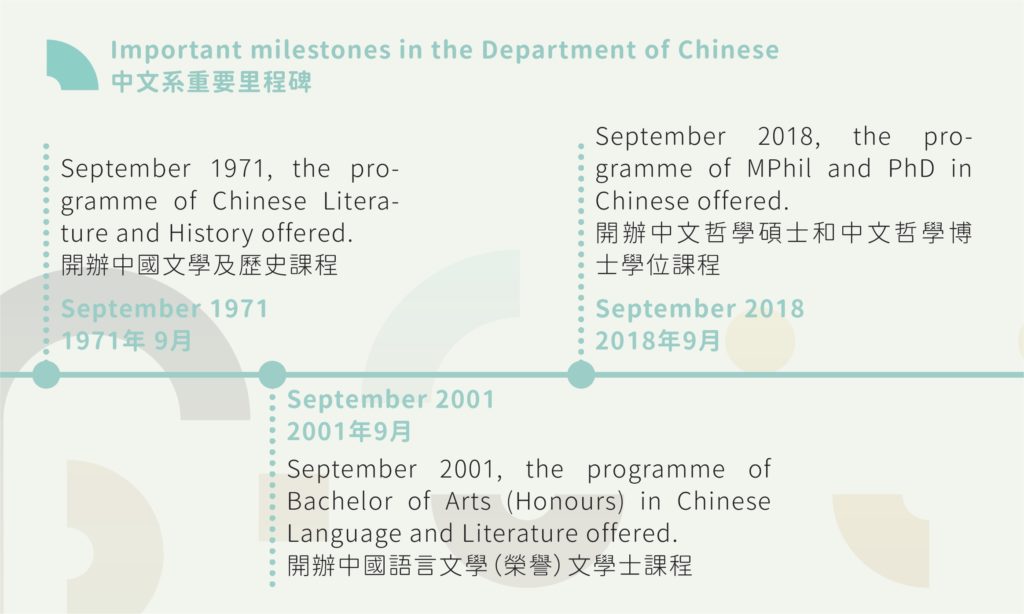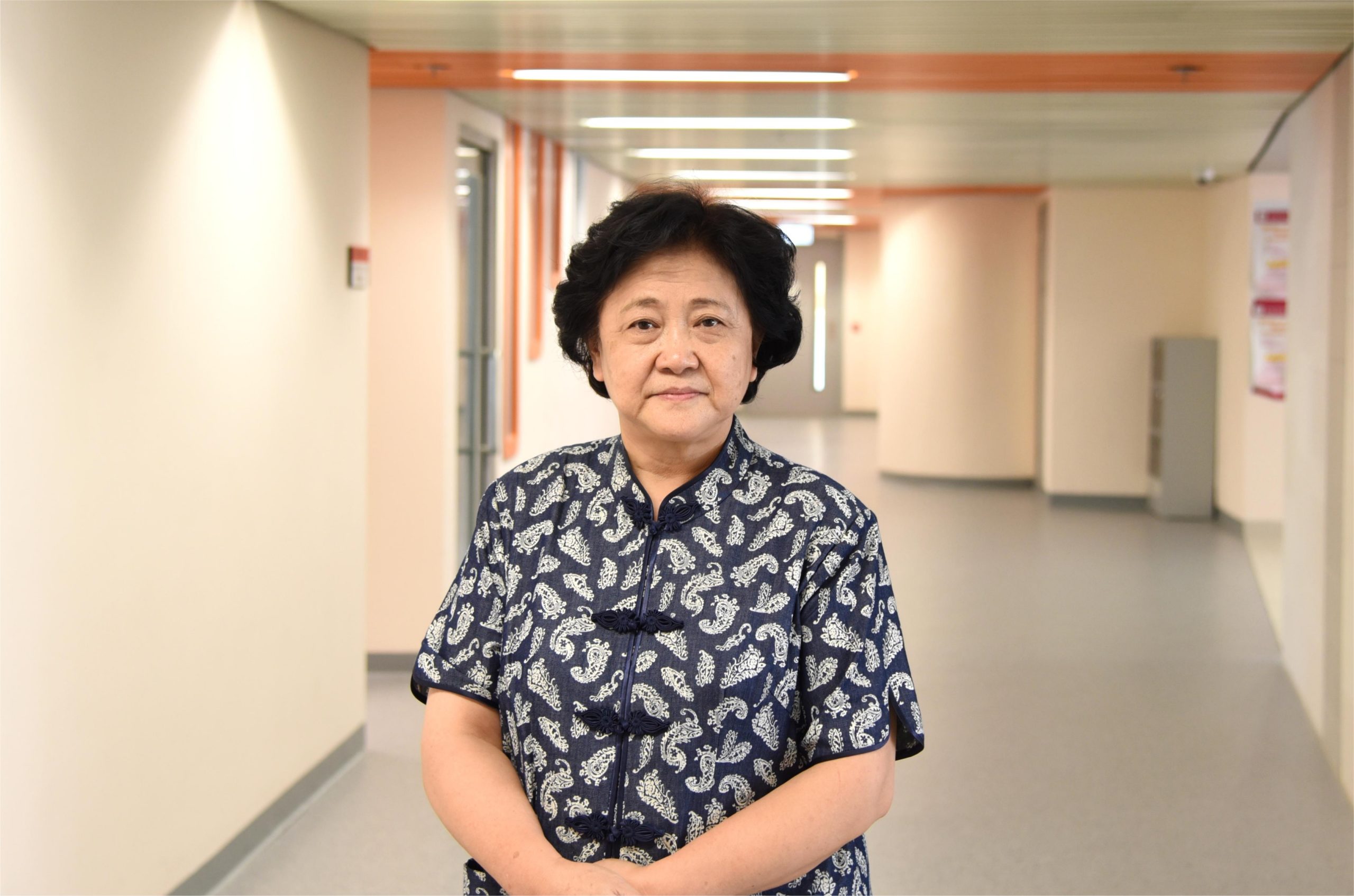In recent years, the Department of Chinese Language and Literature has been determined to reform the curriculum to meet the needs of academic and students development. The next step of the departmental development will be in line with the University’s five-year strategic plan, integrating digital elements into various courses, and providing academic staff with relevant training in digital humanities.
Professor YANG Ruowei, Head of the Department, said that to fulfill the university motto of ‘Cultivating virtues of benevolence; broadening horizon and knowledge’, the department attached importance to the inheritance of Chinese culture and moral education, and emphasized classical literature and literary creation. This can be reflected through the setting of the core courses. In addition to ‘Wenxin Diaolong’, ‘Pian Wen’, ‘Unearthed Manuscripts Dated in the Warring State Period’ which are rarely offered in other universities in Hong Kong, the department also offers unique courses with creative elements, such as ‘Creative Writing’ and ‘Chinese Science Fiction’.
Professor YANG pointed out that after the reforming of curriculum in the 2018/2019 academic year, the department continued to carry forward the advantages of classical literature teaching and added new elective courses of modern and contemporary literature and Chinese linguistics, for example, ‘Hong Kong Literature’, ‘Western Literary Theory in the Twentieth Century’, ‘Taiwan Literature’, ‘Chinese Periodicals and the Study of Modern and Contemporary Literature’, and ‘Special Topics in Chinese Linguistics’. ‘Modern linguistics, with significant contributions since the 20th century, has greatly influenced the development of different fields of humanities
and social sciences. Therefore, the department will embrace the new trends in academic development, drawing on its theories, methods, and perspectives. The department will encourage colleagues to revisit the research of Chinese literature, explore topics and discover problems, for establishing a new paradigm for teaching and research that integrates the Chinese language and literature. The course ‘Changes in Chinese Literary Language Since the May Fourth Movement’ launched last year is an attempt and practice in this regard’.
In order to support the future employment and career development of students, especially those who are interested in Chinese education, the department added the new course ‘Theory and Practice of Chinese Teaching’ in 2020/2021 academic year. The department plans to create a stream ‘Chinese Education and Language Learning’ as one of five teaching areas in the next years and will gradually offer more courses for the stream, including ‘Digital Technology and Chinese Teaching’, ‘Language Acquisition and Teaching Chinese as a Second Language’, ‘Chinese Literature Teaching’, ‘Putonghua Teaching’, and ‘School Attachment and Experience’. The department has also provided new courses closely related to social life and language practice, for example, the courses of ‘Chinese Language, Society and Culture’ and ‘Chinese Industrial Attachment’.
Application of digital humanities in teaching
Professor YANG stated that to cooperate with the development of big data, artificial intelligence, and digital technology in the humanities, the Chinese Department plans to use visualization techniques in the teaching of ‘First Year Chinese’. In this summer, the department filmed 34 episodes of short movies to introduce and criticize classic literary works, such as poetry and prose, for visualizing teaching materials. The movies will be used to support classroom teaching and facilitate students’ discussion. Professor YANG said that the department will continue to explore the use of digital technology to improve teaching. To this end, the department has formulated a series of workshops. One of the workshops had organized in this summer and will continue to provide diverse related training in digital Chinese teaching and research for colleagues.

Source:50th Anniversary Special Issue
